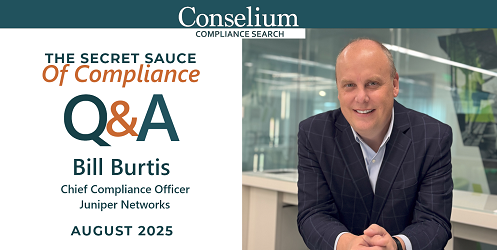
In today’s business landscape, where regulatory oversight is stricter than ever and public trust is fragile, the Chief Compliance Officer (CCO) plays a pivotal role in shaping an ethical corporate culture. Beyond enforcing rules, a CCO’s mission is to embed ethics into the DNA of the organization—creating a culture where compliance is not just a requirement, but a shared value.
This article explores the practical ways a Chief Compliance Officer builds and sustains an ethical environment, ensuring that employees not only follow the law but also act with integrity.
Defining the Ethical Vision
An ethical company culture starts with a clear and compelling vision. The CCO must collaborate with the executive team to define what ethics means for the organization—going beyond generic statements to develop concrete principles tailored to the company’s industry, risk profile, and values.
A well-articulated ethical vision should:
- Reflect the organization’s mission and brand identity.
- Address industry-specific compliance risks.
- Emphasize trust, transparency, and accountability.
By setting the tone from the top, the Chief Compliance Officer ensures that leadership’s words and actions are aligned, making ethics a visible priority.
Establishing Strong Policies and Codes of Conduct
The ethical vision must be translated into actionable standards. A robust Code of Conduct is the cornerstone of any compliance framework. This document outlines expected behaviours, decision-making guidelines, and consequences for misconduct.
An effective Code of Conduct should be:
- Clear and accessible: Written in plain language, free of legal jargon.
- Relevant: Tailored to real-world scenarios employees may encounter.
- Inclusive: Applicable to all levels, from interns to senior executives.
The Chief Compliance Officer ensures that these policies are not just “check-the-box” documents, but living tools that guide daily business decisions.
Leading by Example
Ethical culture is caught more than it is taught. When employees see leaders—especially the CCO—acting with integrity, they are more likely to follow suit. This means making transparent decisions, admitting mistakes, and prioritizing ethical considerations even when they conflict with short-term profits.
For example, if a CCO insists on halting a lucrative deal because of compliance concerns, it sends a powerful message: ethics are non-negotiable.
Implementing Comprehensive Training Programs
Education is vital for embedding compliance into the corporate mindset. The Chief Compliance Officer designs training that goes beyond rule memorization, encouraging employees to think critically about ethical dilemmas.
Best practices for training include:
- Interactive modules: Case studies, role-playing, and scenario analysis.
- Regular refreshers: Annual sessions supplemented with timely updates.
- Targeted content: Different modules for different departments and risk levels.
A well-trained workforce is empowered to spot risks early and make ethical decisions confidently.
Encouraging Open Communication and Reporting
An ethical culture thrives when employees feel safe to speak up. The CCO must implement confidential and accessible channels for reporting concerns—such as anonymous hotlines, digital reporting platforms, and open-door policies.
More importantly, the Chief Compliance Officer must ensure there is no retaliation against whistleblowers. This reassurance encourages employees to raise issues before they escalate into major compliance breaches.
Integrating Compliance into Business Processes
Ethics should not be an afterthought—it should be embedded in every operational decision. A skilled CCO works with other departments to integrate compliance checks into procurement, sales, marketing, and human resources processes.
For instance:
- Procurement: Vetting suppliers for compliance with anti-corruption laws.
- Sales: Reviewing contracts for regulatory risks.
- HR: Including ethical behaviour as part of performance evaluations.
This integration ensures that ethical considerations influence outcomes at every level.
Monitoring, Auditing, and Continuous Improvement
A CCO’s work does not end once policies and training are in place. Continuous monitoring and auditing help identify gaps, track progress, and measure the effectiveness of ethics programs.
Key steps include:
- Regular compliance audits to assess adherence to policies.
- Data analytics to detect anomalies or suspicious activity.
- Employee surveys to gauge perceptions of the ethical climate.
When gaps are found, the Compliance Officer takes prompt corrective action—demonstrating a commitment to improvement rather than punishment alone.
Recognizing and Rewarding Ethical Behavior
One of the most effective ways to reinforce ethics is by celebrating it. The CCO can work with HR to establish recognition programs that reward employees who demonstrate integrity.
Examples include:
- Spotlight stories in company newsletters.
- Ethics awards at annual gatherings.
- Performance bonuses linked to compliance metrics.
When ethical actions are rewarded, they become part of the organization’s identity.
Fostering a Global and Inclusive Ethical Standard
In multinational organizations, the Chief Compliance Officer must adapt ethics programs to diverse legal and cultural environments—while maintaining a consistent global standard. This involves:
- Aligning policies with local laws and customs.
- Providing multilingual training.
- Ensuring overseas offices receive equal compliance support.
A unified approach ensures that ethical culture is not lost in translation.
The Long-Term Payoff
When a CCO successfully embeds ethics into the corporate culture, the benefits extend far beyond regulatory compliance:
- Stronger brand reputation and customer trust.
- Higher employee engagement and retention.
- Reduced risk of legal penalties and financial losses.
- Sustainable business growth built on credibility.
Ethics become a competitive advantage—not just a legal safeguard.
Conclusion
A Chief Compliance Officer is not merely a rule enforcer—they are the architect of an ethical corporate ecosystem. By defining a clear vision, setting strong policies, leading by example, integrating compliance into business processes, and rewarding ethical behavior, the CCO ensures that integrity is woven into the company’s fabric.
In an era where one ethical misstep can damage years of goodwill, a well-executed compliance strategy is not just a necessity—it’s a cornerstone of long-term success.
Published by Conselium Executive Search, the global leader in compliance search.

